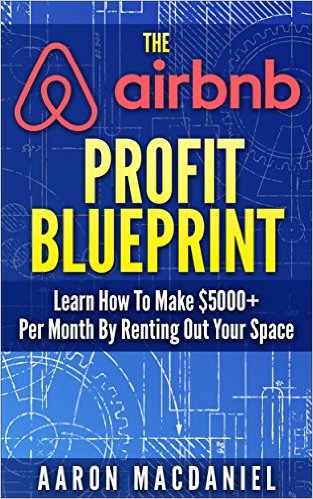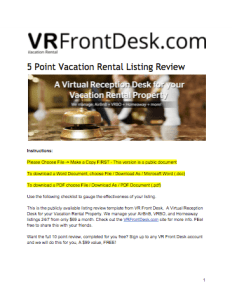In 2016, traveling more may be one of the most recurring New Year resolutions among people. Luckily, traveling has become so convenient nowadays, especially with the rise of online home rental services like Airbnb and Homeaway. Whether one wants to rent a house in the beach, in the city, in the mountains or wherever else, finding a place has become especially convenient. Homeowners simply post their properties online, and travelers get the chance to browse through these prior to choosing one that fits their needs, saving so much money in the process.
Some of these rental services are Airbnb, HomeAway, Onefinestay, 9flats, FlipKey, HouseTrip and Roomorama. In an effort to distinguish themselves, some try to specialize on certain things; for instance, Onefinestay concentrates on high-end listings in top cities such as New York, London and Paris. Apart from this, however, most sites look and function essentially the same, which brings homeowners and renters to a conflict: which vacation rental site should they use?
This entry focuses on the differences between the top two rental sites: Airbnb and HomeAway. Over their years of existence, the two sites have become very vast. HomeAway, boasting more than a million rentals, and Airbnb boasting its span of more than 34,000 cities.
Basically, both sites display rentals based on length and date of stay, location and number of guests. Of course certain differences exist between the two; for instance, there seems to be a difference between the types of dwellings.
Airbnb has many more rentals that are homes that owners setup for rental as they go out of town or even as they are in town and have spare rooms for extra people. Rentals usually range from entire homes, private rooms, bed spaces or even couches!
As for HomeAway, it doesn’t contain any listings for shared or private rooms, but only entire apartments or homes. Also, homeaway has by and far a lore more rentals that are listed by property companies not by the owners. Rentals in HomeAway can usually accommodate bigger groups for receptions and retreats. Many of the rentals feel more like hotels, as well, as they usually do not have permanent occupants, like some of the ones for rent on Airbnb.
Consequently, as there is seen a difference in the types of listings between the two sites, there must also be a difference between the types of guests that use the sites. Airbnb users are generally younger people who are more conscious about prices; it was also noted that Airbnb users are more likely to book closer to the date of the occupancy than that of HomeAway’s.
Generally, Airbnb accommodations really are cheaper, which is why HomeAway users are also relatively older, richer and more likely traveling in groups, or even mostly families. In fact, according to a homeowner that lists on both sites, clients from HomeAway are generally those with higher standards, familiar with renting homes and essentially, likely to spend more on the rental.
For those who take into consideration things such as sense of community, it is probably safe to deduce at this point that atmospheres from rentals coming from Airbnb are usually cozier as they are homes. Most hosts consider the renters as their own personal friends visiting; as a result, their unique style and hospitality are very much felt in the renter’s stay. While this sense of community is also felt among HomeAway rentals, it is not with as much intensity because as mentioned, most listings are from management companies and not really individual or family owners.
Payment schemes for the two sites are also somewhat different. For Airbnb, all payment transactions have to go through the site. Only those who have paid are allowed to review the hosts. For HomeAway, payment methods vary depending on the homeowner. The site merely connects the renter with the property owner, who is then in charge of collecting the payment. In addition to monetary talks, Airbnb listings are free! The site earns by commission from each booking. HomeAway uses the same scheme, but its per listing percentage fee is very high if you don’t pay the subscription price, currently about 10% per booking! Therefore if you book more than a few stays a year, it makes sense to use their subscriptions which start at $349 per year. Higher cost plans prioritize other rentals after searching; however, there still is no guarantee of booking.
In closing, there really is no site that is better than the other per se. It all depends on the type of homeowner or renter you are; the two have their own pros and cons! The good thing is, both sites do have FAQs and guides for those who want to learn more about them, and you can definitely check that out.



Recent Comments